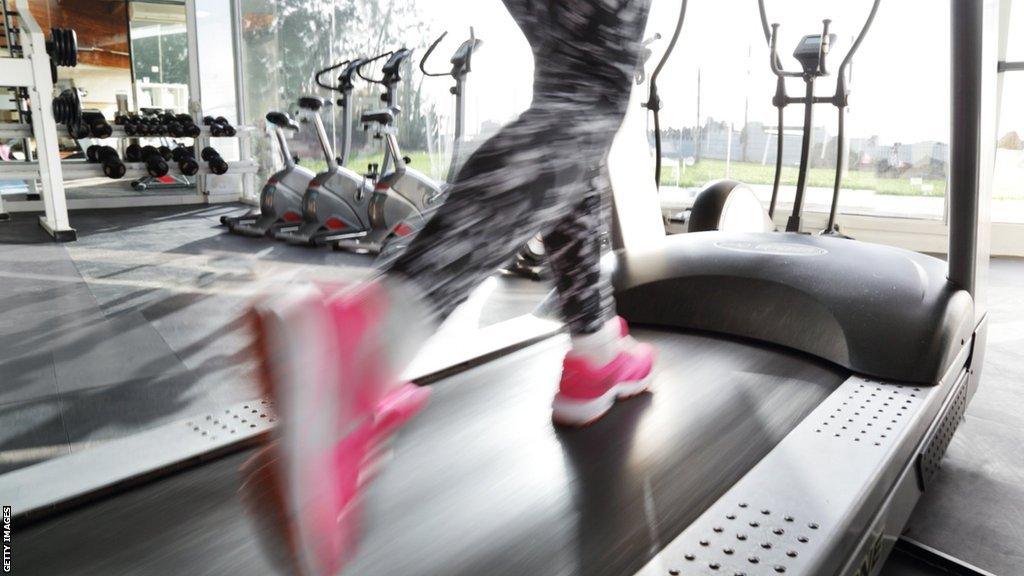Sport England announces 'shake up' in funding to tackle physical inactivity
- Published

Chief medical officer guidelines say adults from ages 19 to 64 should do at least 150 minutes of moderate intensity activity or 75 minutes of vigorous intensity activity each week
Sport England has announced "one of the biggest shake-ups of funding in decades" with £250m redirected towards deprived areas with the worst levels of physical inactivity over the next five years.
The agency said the investment - which comes from existing budgets - would target between 80-100 local communities to overcome "manifestly unfair" inequalities preventing people from playing sport.
It has also revealed new research showing that the most active place in England has almost double the activity levels (81%) of the poorest areas (43%).
It also shows that a person's lifespan can vary by up to nine years depending on where you live.
A quarter of adults in England are currently deemed to be inactive, with more than 11m doing less than 30 minutes of activity in total a week.
And statistics indicate that 53% of children and young people are not meeting the guidance of taking part in at least 60 minutes of activity a day.
Sport England have been trialling 'Local Delivery Pilots' in 12 of the country's most disadvantaged and least active communities.
"Access to sport and physical activity in England is still not close to being a level playing field" said Tim Hollingsworth, chief executive of Sport England.
"Too often, people in low-income communities don't have access to the same facilities or opportunities as wealthier areas.
"This is manifestly unfair - and must be addressed as a real priority. That is why our expanded Place Partnership programme will unashamedly see us target our resources and efforts on communities that need the greatest levels of support and experience the greatest levels of inequality."
Three months ago, the government launched a new initiative with the target of getting an additional 3.5m people physically active by 2030, including one million children.
"This £250m investment from Sport England will help make that a reality," said Sports Minister Stuart Andrew MP.
"This targeted place-based funding gives greater access to quality activities and clubs for people of all ages in areas of the country that need it most."
However, with concerns over the state of leisure facilities, a drop in the amount of sport and physical education in schools over the past decade, and the impact of the cost of living crisis on people's ability to exercise, many believe a radical overhaul is needed, along with more investment into the sector.
"80 to 100 places is fantastic, but it is only 80 to 100 places," Andy Taylor, chief executive of Active Partnerships, told BBC Sport.
"We need to take that further and wider and we need to get organisations and departments working together with that common goal. Investment is important but we need to be efficient as a system. We need that vision from national government to have that healthy nation. There's too much of 'We've got NHS waiting lists - how do we reduce them?'…Well actually, we need to look earlier - it needs to be a long-term plan."
New research from charity Sported shows that among its 3,000 community groups across the UK, more than 90% claimed they are concerned about the impacts of the current economic pressures on their group.
Sixty percent of group leaders said they have seen young people who cannot afford activities, and more than half have seen reductions in participation in, or disengagement from, sport and physical activity.
The House of Lords Sport and Recreation Committee has recommended that responsibility for sports policy should move from the Department for Digital, Culture, Media and Sport, with a new minister for sport, health and wellbeing as part of a "radical" shake-up of sports policy.
It also said PE should become a core national curriculum subject in schools, and called for a new statutory requirement for local councils to provide and maintain facilities for physical activity.